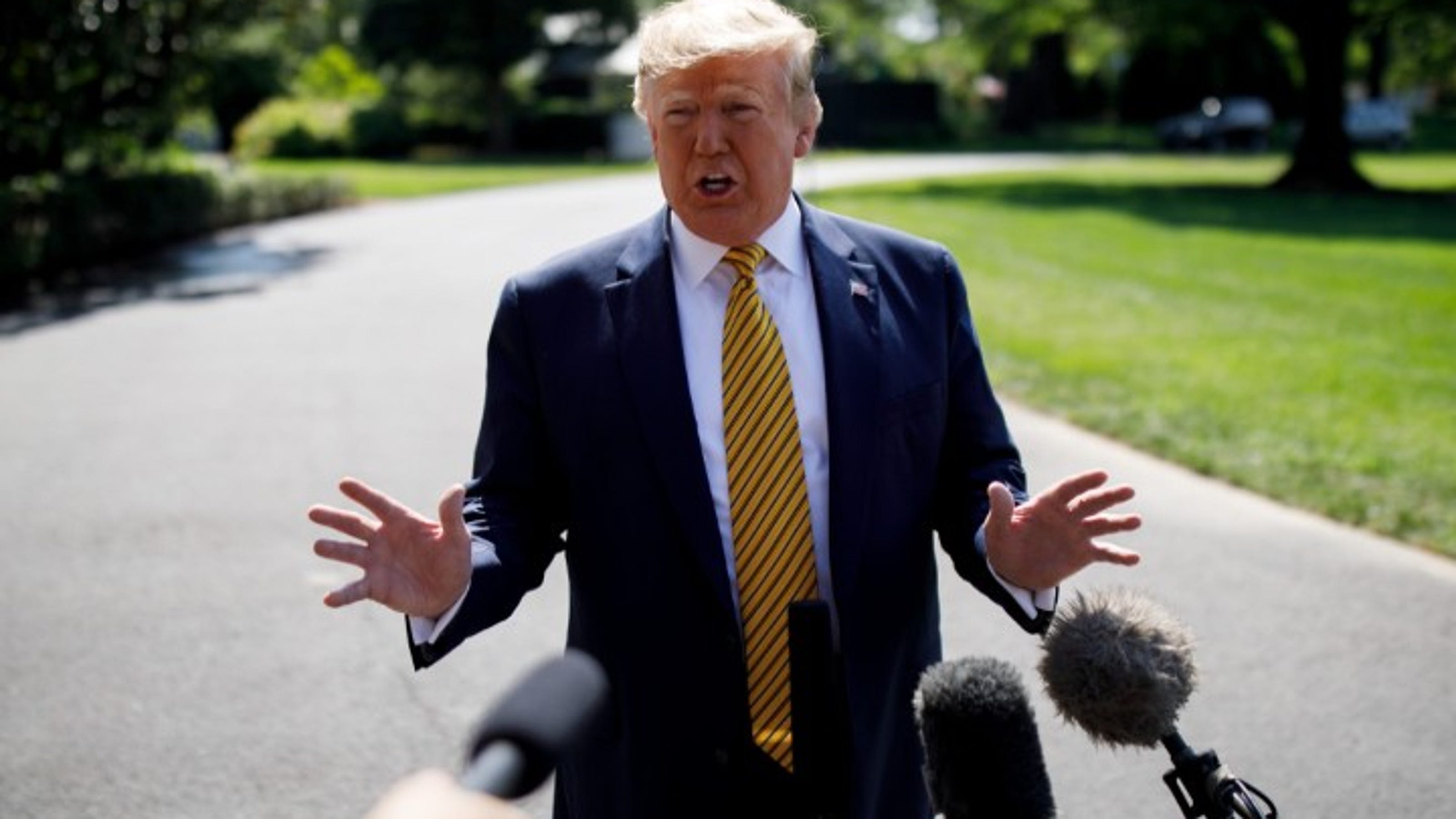Did Allegations Of Sexual Misconduct Affect Donald Trump's Presidential Victory? An Analysis

Table of Contents
The Nature and Scope of the Allegations
The 2016 presidential campaign saw a cascade of accusations of sexual misconduct against Donald Trump, ranging from unwanted sexual advances to allegations of assault. These accusations, reported by various media outlets and individuals, spanned several decades and involved numerous accusers. The timing and nature of these allegations varied considerably, with some surfacing earlier in Trump's career and others emerging during the heat of the campaign. The sheer number and variety of claims added to the complexity of assessing their overall impact.
- Key Allegations and Sources:
- Accusations of unwanted kissing and groping, reported by several women in the weeks leading up to the election (e.g., The New York Times, The Washington Post).
- Allegations of sexual assault, detailed in individual testimonies and media reports.
- Accounts of inappropriate behavior towards women, spanning decades, surfaced throughout Trump's career.
The media played a crucial role in reporting and disseminating these allegations, leading to widespread public awareness and fueling intense debate. The volume and prominence of this coverage undoubtedly influenced the perception of the allegations among voters.
Public Opinion and the Allegations
Analyzing public opinion surrounding the allegations requires careful consideration of pre- and post-allegation polling data. While some polls showed a negative impact on Trump's approval ratings following the release of specific accusations, others indicated a more resilient support base. The impact varied significantly across demographic groups.
- Impact on Approval Ratings: Polls indicated varying degrees of impact on Trump's approval ratings, with some showing a dip and others showing little to no change, depending on the timing and nature of the allegations and the specific demographic group surveyed.
- Voter Attitudes: Public opinion on the accusations was deeply divided along partisan lines, with strong support among Republicans often overshadowing negative reactions among independents and Democrats.
- Demographic Variations: Women were more likely to view the allegations negatively than men, and younger voters also tended to express more concern than older voters.
Interpreting this data requires acknowledging the inherent limitations of polling and the influence of media coverage on responses. However, the available data indicates a complex and nuanced public response that wasn't uniformly negative.
Voter Behavior and the Election Outcome
Understanding the impact on voter behavior requires examining exit polls and election results. While exit polls suggested that some voters considered the allegations, the data is not conclusive in determining the extent of their influence on the final outcome.
- Swing Voters: It is challenging to definitively determine the impact on swing voters. While some might have been swayed, the complex interplay of numerous factors in the election makes isolating the effect of these allegations difficult.
- Election Results Analysis: Trump's victory was ultimately determined by a narrow margin in key swing states. The influence of the allegations on this outcome remains a subject of debate among political scientists and analysts.
- Voter Turnout: The impact on voter turnout is also unclear. While some suggest that the allegations might have mobilized or suppressed voters, conclusive evidence remains elusive.
The available evidence suggests that while the allegations were a factor in the election, their ultimate impact is difficult to quantify definitively.
The Broader Political Context
To fully understand the impact of the sexual misconduct allegations, one must examine the larger political context of the 2016 election. Several other significant issues dominated the campaign narrative, potentially overshadowing the effect of the allegations.
- Other Campaign Issues: The economy, healthcare, immigration, and national security were major campaign topics, potentially distracting from the allegations for some voters.
- Impact of Media Bias: The media's coverage of the allegations was not uniform, with differing levels of prominence and framing across various outlets, potentially influencing public perception.
- Role of Social Media: Social media amplified both the allegations and counter-narratives, contributing to the fragmented and polarized public discourse.
Analyzing the allegations in isolation neglects the complex tapestry of events and issues that defined the 2016 election.
Conclusion
Determining the exact impact of the sexual misconduct allegations on Donald Trump's 2016 presidential victory remains a complex and multifaceted challenge. While the allegations undoubtedly generated significant public discussion and affected some voters, their influence on the final outcome is difficult to isolate from the numerous other factors at play. The available evidence suggests a nuanced impact, not a simple cause-and-effect relationship. Further research is crucial to thoroughly understand the lasting ramifications of such allegations in presidential elections. This analysis provides valuable insights into the intersection of political scandals, public opinion, and election outcomes. Further research is needed to fully understand the lasting impact of allegations of sexual misconduct on presidential elections. Continue the conversation by researching and discussing the broader implications of the "Did Allegations of Sexual Misconduct Affect Donald Trump's Presidential Victory?" question.

Featured Posts
-
 Rossiyane V Dubae Slozhnosti Trudoustroystva I Perspektivy
May 17, 2025
Rossiyane V Dubae Slozhnosti Trudoustroystva I Perspektivy
May 17, 2025 -
 Andor Season 2 Trailer Release Date Speculation And Confirmed Details
May 17, 2025
Andor Season 2 Trailer Release Date Speculation And Confirmed Details
May 17, 2025 -
 Lena I Vladimir Na Transformativen Film Na 31st Sedona International Film Festival
May 17, 2025
Lena I Vladimir Na Transformativen Film Na 31st Sedona International Film Festival
May 17, 2025 -
 Mitchell Robinsons Ankle Surgery Recovery Knicks Star Back In Action
May 17, 2025
Mitchell Robinsons Ankle Surgery Recovery Knicks Star Back In Action
May 17, 2025 -
 Singapore Airlines Announces Over 7 Months Bonus For Employees
May 17, 2025
Singapore Airlines Announces Over 7 Months Bonus For Employees
May 17, 2025
